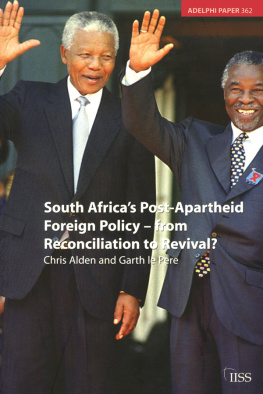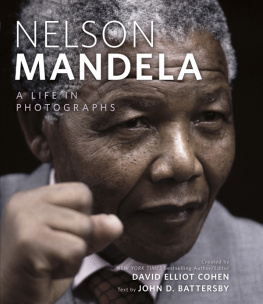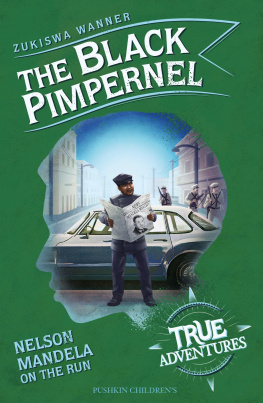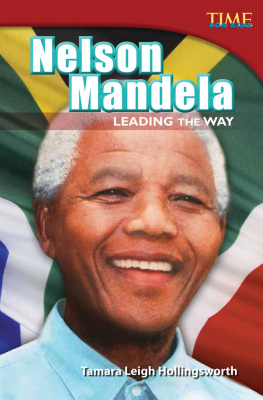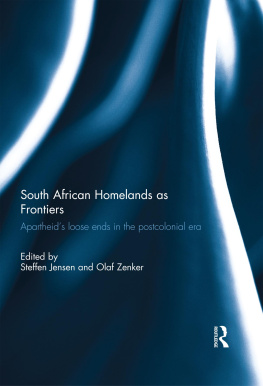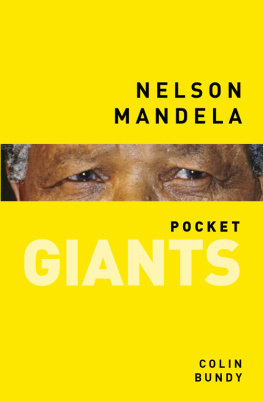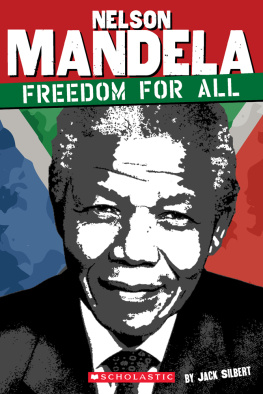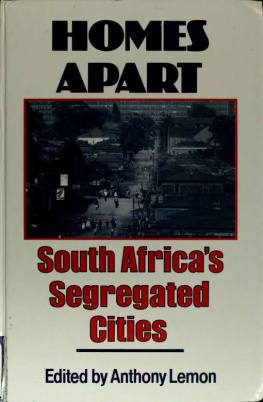ACKNOWLEDGEMENTS
Ignorance has many virtues. My research, at first narrowly focused on Transkeis chieftaincy during the apartheid era, imperceptibly morphed into a much wider project concerning the relationship between nationalism and ethnic identities. As I stumbled into the intricacies of Bantustan politics, my initial bearings were provided by two generations of excellent scholarship that have discussed this subject. I hope the book that follows clearly sets out the distinctiveness of my interests and interpretation, without short-changing these important contributions from which I have drawn much sustenance.
Another advantage of ignorance was that I was initially blithely unaware of the sheer difficulty of obtaining archival material. Ironically, the most recent era is most poorly documented, the archives of the Bantustans largely lost and scattered. I eventually put together a documentary trail that charts this history in detail by searching 25 archival collections and tracking down lost sources to government offices, from Cape Town to Pretoria via the more remote parts of rural Transkei and the Eastern Cape. In total I drove more than 50,000km in search of interviews and archival troves. This would not have been possible without the generous support provided by the Arts and Humanities Research Council, the Beit Fund and, latterly, the South African National Research Foundations Chair in Local Histories.
Readers who comb through footnotes will note that I draw heavily on two archives. The first is the Eastern Cape newspaper, the Daily Dispatch , which provided incredibly detailed reporting on Transkeis politics from its news-desk in the regions main town, Umtata. The second is the archives of the apartheid governments Department of Foreign Affairs, whose meticulous reporting on subversion and dissidence was fuelled by fears that the Bantustan project was running out of control (as indeed it was). I would like to thank librarians and archivists who helped me navigate South Africas archives, making special mention of the wonderful Daily Dispatch newspaper as well as Sandy Shell who taught me that any archive can be found if one simply phones enough people. Thembile Ndabeni very kindly translated documents for me. I am also grateful to Jeff Peires, historian, policymaker and politician, with his own deep hinterland in the region, whose advice was hugely helpful. I have also used documents and interviews kindly provided by Dunbar Moodie, Jeff Peires and Wolfgang Thomas that come from their personal archives.
My greatest debt of thanks is owed to the men and women who kindly agreed to be interviewed. Most important were the fifty-odd life history interviews I undertook with Eastern Cape based nationalist activists, who spoke about their personal connections to the Transkei chieftaincy and Bantustan bureaucrats. The apartheid government turned the chieftaincies into self-governing, tribal Bantustans as a means of fragmenting African nationalism, dividing families against each other. Nelson Mandelas fractious relationship with his nephew, Kaiser Matanzima, the Chief Minister of the Transkei Bantustan epitomised these rifts. Nevertheless, tenuous connections remained, even during the most brutal phases of apartheid, when hit-squads murdered student activists. This is a sensitive subject. If Transkeis notables were a tight-knit family, then (to stretch the metaphor) there were murdered siblings still mourned today and intimate betrayals that have not been forgotten. My book attempts to handle these painful subjects empathetically and I make no revelations that are not already found in publically accessible documents or widely discussed in ANC circles. I apologise for any mistakes and misjudgements made along the way.
I am also aware that my interest in the relationship between nationalist activists and the Bantustans has obscured other important dynamics the significance of gender within elite family networks, the role of labour migrants, for instance. These subjects have their own extensive historiography, which I hope to explore in future projects.
Many people nourished and housed me during my travels across South Africa. I would like to especially thank: Julian Brown and his parents, Simon Brown, Tracy Carson, Andy Gibbs and Samantha Willan, Steve Innes, Andy Kerr, Sindi Magcaba, Ica Mbebe, Holly McGee, Israel Mdingi, Nolwazi Mkhwanazi, Iris Mqotsi, Justin Pearce, Kelly Rosenthal, Genevieve and Thula Simpson, and Ross Truscott, also paying respects to the late Richard Canca and Livingstone Mqotsi. Fort Hare Institute of Social and Economic Research kindly provided me with an office during an extended stay in East London, South Africa. I must also thank those whom I interviewed (named in the bibliography) who were invariably generous in their hospitality.
I started the book manuscript in the South African National Research Foundations Chair in Local Histories at the University of Witwatersrand and finished at Trinity College, Cambridge. The first has views of Johannesburgs mine dumps, the latter immaculate lawns; both have been wonderfully supportive institutions in which to get on with the slow and silent business of writing.
I owe much to William Beinart, who grasped the essential themes of my research long before I did. Julian Brown, John Darwin, Bill Freund, Jonny Steinberg and Randolph Vigne kindly commented on various chapters. Lungisile Ntsebeza sent me a draft chapter from his own work, which helped me rethink some of my own arguments. Phil Bonner, Colin Bundy, John Iliffe, John Lonsdale and Roger Southall read different versions of the entire manuscript, sometimes multiple times. Barbara Genevazs comments transformed a stodgy manuscript into something that is far more readable, I hope. Jeff Peires read the penultimate draft and saved me from countless errors of interpretation and fact. Juliette Genevaz read the earliest, most incoherent drafts and provided much appreciated advice and support.
A number of my arguments were trialled in an article published by the Journal of South African Studies 37,4 (2011) and a chapter published in book edited by William Beinart and Marcelle Dawson, Popular Resistance Movements in South Africa (Wits University Press, Johannesburg, 2010). I would like to thank the editors and anonymous reviewers for very helpful feedback.
Without all this help my book would be immeasurably poorer; nonetheless errors of fact and interpretation inevitably remain. These faults will be happily corrected should this book make a second edition!


